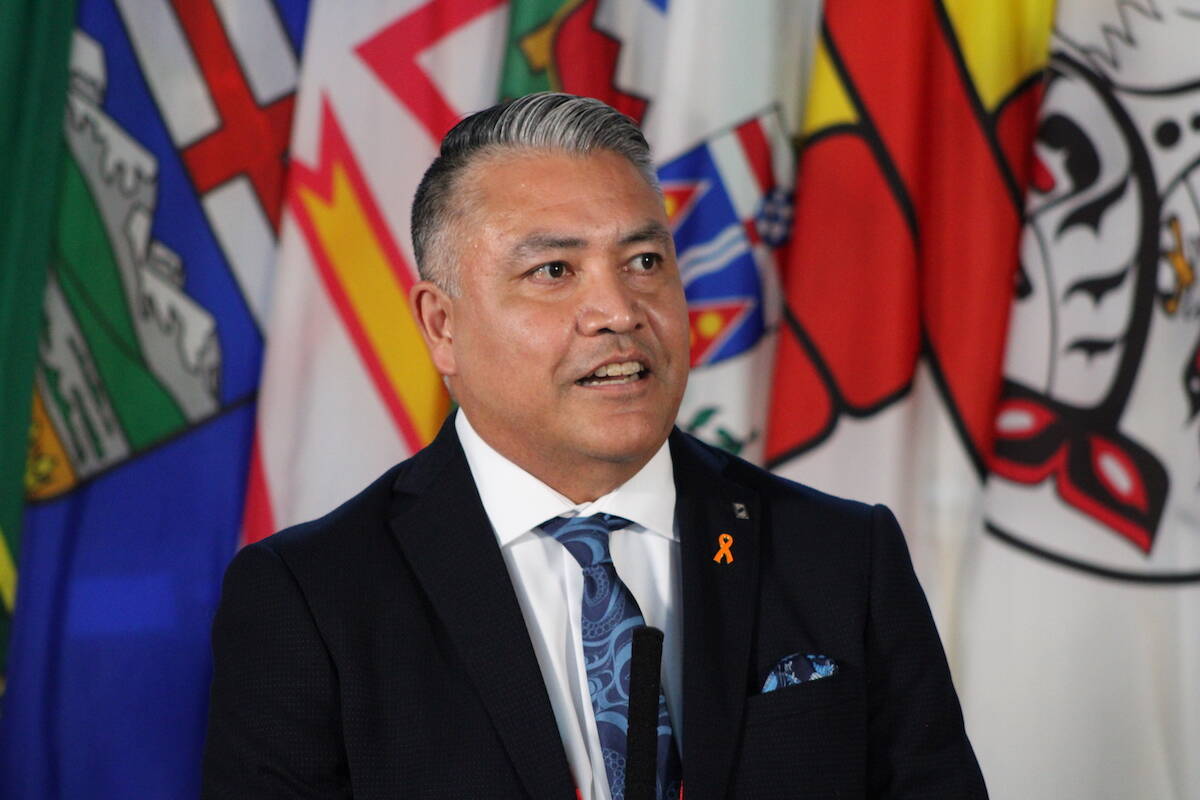Indigenous people are overrepresented in the federal corrections system, according to a recent watchdog report, and the BC Assembly of First Nations is calling for a desperate and urgent transformation.
The BC Assembly of First Nations made the call Thursday (Nov. 2) following the release of the 50th annual report from the Office of the Correctional Investigator Dr. Ivan Zinger.
The report notes that Correctional Services Canada continues to fail to address the over-incarceration of Indigenous people in federal prisons, which increased to 32 per cent from 23 per cent in 2013. That’s about 4,200 Indigenous people currently incarcerated.
Indigenous women also now account for half of the total female federal inmate population.
READ MORE: Canadian prisons ‘disturbingly and unconscionably Indigenized’: corrections watchdog
BCAFN Regional Chief Terry Teegee said the federal government must collaborate with First Nations to enact the Zinger’s recommendations, adding that transforming the justice system is a critical and urgent component of the United Nations Declaration on the Rights of Indigenous Peoples Act.
“We have long known that the justice system, and the corrections system, are in desperate and urgent need of fundamental transformation. Too many reports, year after year, have shed light on this fact without accountability for decisive action and tangible change.”
Teegee said state-run healing lodges are funded at a rate nearly two times greater than community-run health lodges, “which is unacceptable and shows how this system continues to undermine, and undervalue, Indigenous-led approaches to self-determination, restoration and well-being.”
Zinger’s report notes that only two per cent of Indigenous people under federal custody are serving their sentence in a community-run Section 81 Healing Lodge. In the 10 years since his original report, “Spirit Matters: Aboriginal People and the Corrections and Conditional Release Act,” was released only one new Section 81 Healing Lodge has been created, with none in Ontario, the Atlantic region, the north nor any community-run facility in the Pacific region.
“It is simply unacceptable that the federal government spends approximately two times more on CSC or state-run Healing Lodges, or 40 per cent less per resident in community versus state-run facilities. A two-tiered Healing Lodge system means that these facilities are in constant competition with one another for resources, staff and residents. This state of affairs is wasteful and makes no sense,” explained Zinger.
He called on the federal government to return state-run healing lodges to Indigenous title as originally intended.
Zinger released his report Tuesday where he said there are still too many incarcerated Indigenous people in Canada, and nearly everything about the correctional system that can be measured — from the amount of time accused people spend behind bars before trial to the likelihood of their being placed in maximum-security institutions — perpetuates that discrimination.
That problem has only gotten worse, he said.
“Professionally and personally, this work grows out of increasing frustration with the futility of responding to the crisis of Indigenous over-incarceration in Canada with more of the same failed policies and approaches.”
More than 220 people, including inmates, elders and correctional staff, were interviewed for the report.
One of them told the investigator that the treatment Indigenous inmates face is reminiscent of what they experienced in residential school. The person, who is unnamed in the report, said “we have been put down,” and “we have been lied to.”
– With files from the Canadian Press
READ MORE: First Nations grappling with toxic drug crisis need own solutions: B.C. doctor

